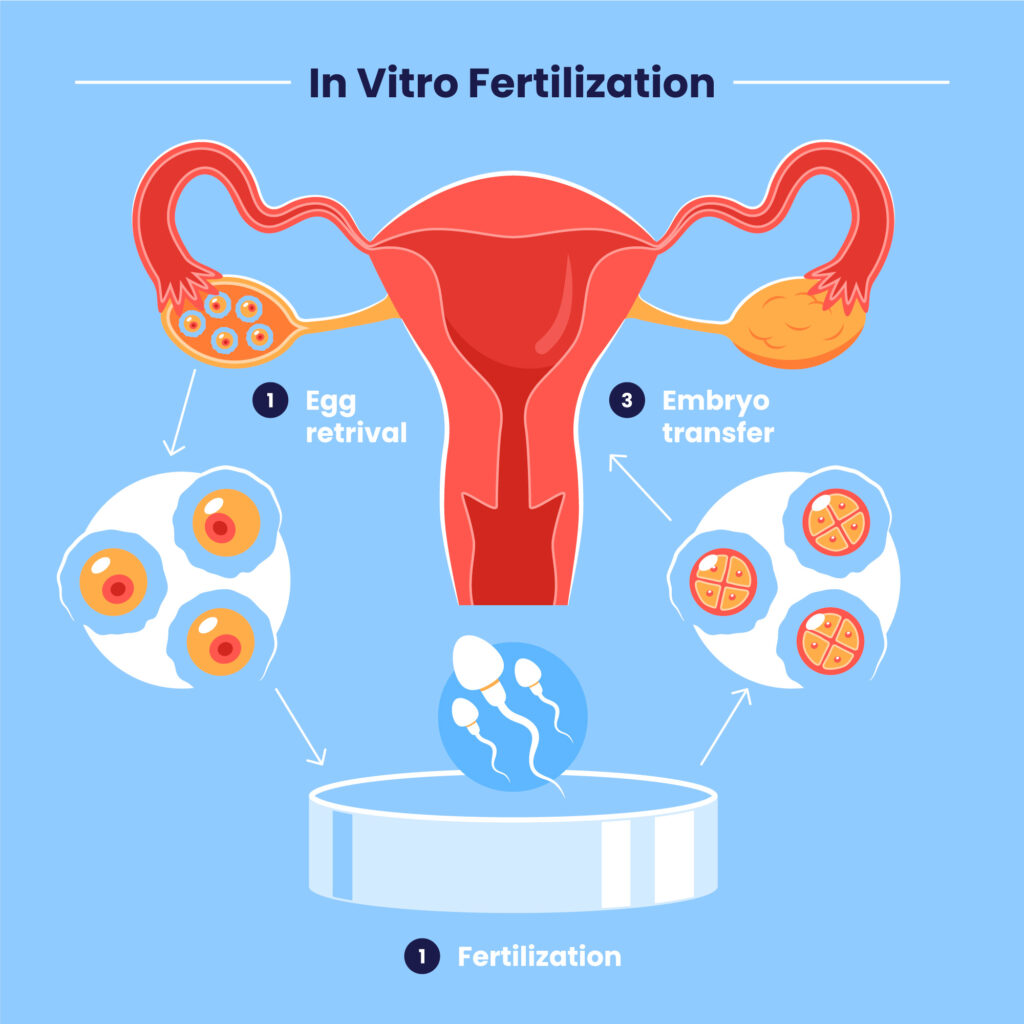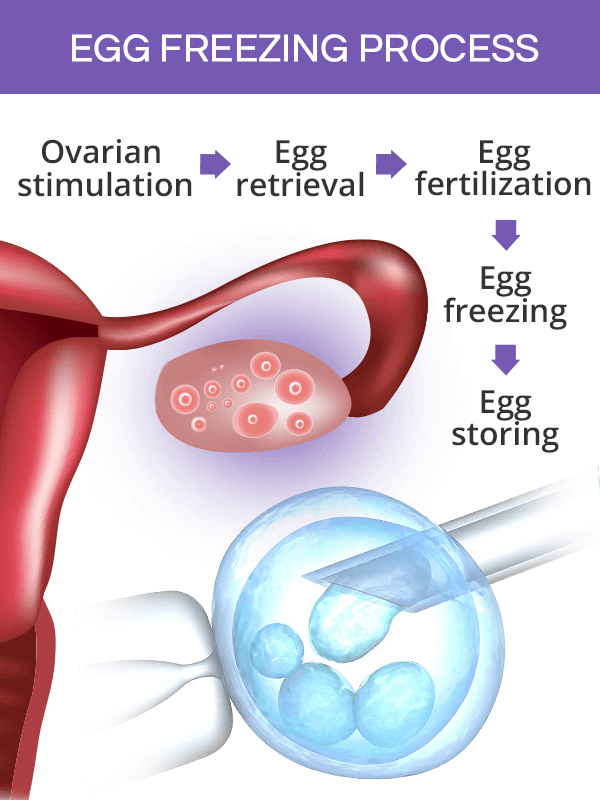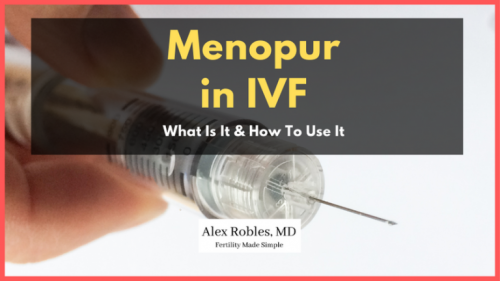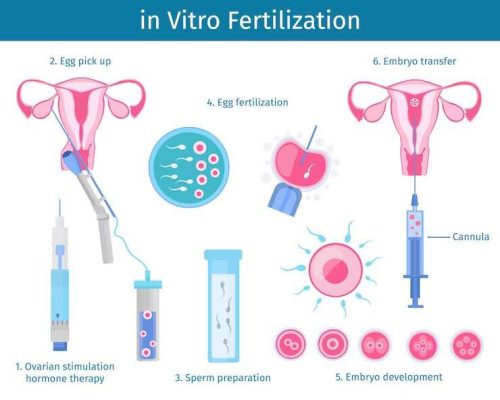Does IVF Freeze Eggs or Embryos? Your Complete Guide to Understanding the Process
When you hear about in vitro fertilization (IVF), you might picture a high-tech lab, petri dishes, and the promise of a baby. But one question pops up a lot: Does IVF freeze eggs or embryos? The short answer is both—depending on your situation. IVF is a flexible process, and freezing plays a huge role in making it work for so many people. Whether you’re just curious or seriously considering IVF, this guide will walk you through everything you need to know about freezing eggs, embryos, and how it all fits into the journey to parenthood.
IVF isn’t a one-size-fits-all deal. Some people freeze eggs to keep their options open for later, while others freeze embryos after fertilization for a future pregnancy attempt. Each choice has its own perks, challenges, and reasons behind it. Let’s dive into the details, break it down step-by-step, and explore what’s new in the world of IVF freezing as of April 2025.
What Happens in IVF? A Quick Rundown
IVF is like a carefully choreographed dance between science and nature. It starts with stimulating the ovaries to produce multiple eggs, retrieving those eggs, fertilizing them with sperm in a lab, and then transferring the resulting embryo (or embryos) into the uterus. But here’s where freezing comes in: not every egg or embryo gets used right away. Some are saved for later, and that’s a game-changer for many families.
Freezing—whether it’s eggs or embryos—lets you pause the process. Maybe you’re not ready to get pregnant yet, or maybe you want a backup plan if the first try doesn’t work. It’s like putting your fertility on hold without losing momentum. So, does IVF freeze eggs or embryos? It depends on where you are in the process and what you’re aiming for.
Freezing Eggs: Preserving Your Future
Why Freeze Eggs?
Freezing eggs is all about keeping your options open. Imagine you’re 32, super focused on your career, and not quite ready to start a family. Or maybe you’re facing a medical treatment—like chemotherapy—that could harm your fertility. Egg freezing lets you save healthy eggs now and use them later when the timing’s right.
In IVF, egg freezing happens before fertilization. Doctors retrieve your eggs, flash-freeze them using a technique called vitrification, and store them in liquid nitrogen at -321°F. These eggs stay “on ice” until you’re ready to thaw them, fertilize them with sperm, and create embryos.
How It Works
The process starts with hormone injections to boost your egg production. Normally, your body releases one egg a month, but IVF ramps that up to 10 or more. Once the eggs are mature, a doctor retrieves them in a quick outpatient procedure. Then, they’re frozen lightning-fast to avoid damage from ice crystals.
- ✔️ Pros: You don’t need a partner or donor sperm right away. It’s your eggs, your timeline.
- ❌ Cons: Not every egg survives thawing, and success depends on your age when you freeze them.
What Science Says
Studies show eggs frozen before age 35 have the best shot at leading to a pregnancy later. According to the American Society for Reproductive Medicine, about 90% of eggs survive the thaw, and 70% fertilize successfully. But here’s the catch: it’s not a guarantee. For every 10 eggs frozen, you might get 1-4 viable embryos, depending on your age and egg quality.
Practical Tips
If you’re thinking about freezing eggs, timing is everything. The younger you are, the better the odds. Aim for your 20s or early 30s if possible. Also, plan for multiple cycles—10-15 eggs give you a solid chance at success down the road. And don’t skip the consultation with a fertility specialist; they’ll check your ovarian reserve (how many eggs you’ve got left) to set realistic expectations.
Freezing Embryos: A Step Further
Why Freeze Embryos?
Embryo freezing takes things one step beyond eggs. After eggs are retrieved and fertilized with sperm in the lab, the resulting embryos can be frozen for later use. This is super common in IVF because one cycle often produces more embryos than you’d transfer at once. Maybe you want to try for a baby now and save the rest for a sibling later. Or perhaps you’re doing genetic testing, which takes time, so freezing keeps the embryos safe until you’re ready.
How It Works
Once eggs are fertilized, they grow in a lab for 5-7 days until they reach the blastocyst stage—about 100-200 cells strong. Then, they’re vitrified and stored, just like eggs. When you’re ready, the clinic thaws them and transfers one (or sometimes two) into your uterus.
- ✔️ Pros: Embryos have a higher survival rate after thawing (over 95%) compared to eggs. You also know they’ve already fertilized successfully.
- ❌ Cons: You need sperm upfront—either from a partner or donor—so it’s less flexible than egg freezing.
What Science Says
Research from Johns Hopkins Medicine shows pregnancy rates with frozen embryos are often as good as—or better than—fresh ones. A 2023 study found that frozen embryo transfers (FET) had a 28.6% live birth rate per transfer, compared to 19.2% for fresh transfers. Why? The uterus gets a break from hormone overload, making it more receptive.
Practical Tips
If you’re freezing embryos, talk to your doctor about how many to transfer at once. Single embryo transfers are safer (fewer twins or triplets), but some folks opt for two if they’re over 35. Also, check your clinic’s storage fees—embryos can stay frozen for years, but it’s not free.
Eggs vs. Embryos: What’s the Difference?
So, does IVF freeze eggs or embryos? It’s not an either/or question—it’s about what fits your life. Here’s a breakdown to help you decide:
| Factor | Egg Freezing | Embryo Freezing |
|---|---|---|
| When It Happens | Before fertilization | After fertilization |
| Who It’s For | Single folks, future planners | Couples or those with a sperm source |
| Survival Rate | ~90% of eggs survive thawing | ~95% of embryos survive thawing |
| Success Rate | Depends on age at freezing | Higher per transfer |
| Flexibility | Total control over timing | Tied to a sperm decision |
| Cost | $6,000-$10,000 per cycle + storage | $12,000-$15,000 per IVF cycle + storage |
A Real-Life Example
Meet Sarah, 29, who froze her eggs last year. She’s single and wants kids someday but isn’t ready now. Fast-forward to 2025: she’s 31, meets someone, and uses those eggs for IVF. Compare that to Mia, 34, who did IVF with her husband. They froze three embryos after their first kid was born in 2024. Now, they’re planning baby #2 without starting from scratch.
Both paths work—it’s about what suits you.
The Freezing Process: Vitrification Unveiled
Whether it’s eggs or embryos, freezing today is a high-tech marvel called vitrification. Think of it like flash-freezing your favorite dessert to keep it perfect. Older “slow-freeze” methods risked ice crystals damaging cells, but vitrification uses cryoprotectants (like antifreeze) and super-fast cooling to turn cells into a glass-like state. No ice, no damage.
- Step 1: Cells get a cryoprotectant bath.
- Step 2: They’re plunged into liquid nitrogen at -321°F.
- Step 3: Stored in tanks until you need them.
This tech has boosted success rates big-time. A 2024 report from the Cleveland Clinic says vitrification has made frozen embryo transfers the go-to choice for many, with pregnancy rates climbing yearly.

What’s New in 2025? Fresh Research and Trends
IVF freezing isn’t standing still. Here’s what’s buzzing as of April 2025, based on the latest studies and chatter on platforms like X:
1. AI-Powered Embryo Selection
Clinics are using artificial intelligence to pick the best embryos for freezing. A 2024 study from Stanford showed AI can predict embryo viability 15% better than human embryologists. That means fewer duds and higher success rates.
2. Egg Freezing on the Rise
Google Trends shows “egg freezing success rates” spiking in searches this year. More women in their 20s are freezing eggs, driven by awareness campaigns and better insurance coverage in some states. X posts echo this—folks are sharing stories of freezing eggs “just in case.”
3. Ethical Debates Heating Up
Freezing embryos sparks big questions. What happens to unused ones? A 2025 Southern Baptist Convention vote condemned IVF embryo use, pushing some to adopt frozen embryos instead. It’s a hot topic online, with people weighing personal choice vs. moral dilemmas.
Interactive Quiz: Eggs or Embryos—What’s Your Fit?
Take a sec to figure out which option might suit you. Answer these quick questions:
- Are you single or unsure about a partner?
- Yes → Egg freezing might be your vibe.
- No → Embryos could work if you’ve got sperm ready.
- Do you want kids soon or way later?
- Soon → Embryos might speed things up.
- Later → Eggs give you more time.
- How do you feel about extra embryos?
- Cool with it → Embryo freezing’s fine.
- Not sure → Eggs avoid that issue.
Tally your answers—what’s your lean? Share your thoughts in the comments!
Busting Myths About Freezing
IVF freezing comes with some tall tales. Let’s set the record straight:
- Myth: Frozen eggs or embryos aren’t as good as fresh.
- Truth: Studies (like one from Yale Medicine, 2024) show frozen can outperform fresh in some cases. It’s all about timing and tech.
- Myth: Freezing hurts your future kids.
- Truth: No evidence of higher birth defects with frozen eggs or embryos, per the CDC.
- Myth: It’s only for older women.
- Truth: Younger folks freeze too—sometimes for medical reasons, sometimes for life goals.
Costs and Logistics: What to Expect
Freezing isn’t cheap, but it’s an investment. Here’s the scoop:
- Egg Freezing: $6,000-$10,000 per cycle, plus $500-$1,000 yearly storage.
- Embryo Freezing: Part of a $12,000-$15,000 IVF cycle, with similar storage fees.
Insurance might cover some costs if it’s medically necessary (like before cancer treatment), but elective freezing is usually out-of-pocket. Check your state—places like New York and California are pushing for better coverage in 2025.
Storage-wise, eggs and embryos can stay frozen for decades. The longest successful thaw? A baby born in 2023 from an embryo frozen 27 years ago!
Three Things You Haven’t Heard Before
Most articles skim the surface, but here are some deeper dives:
1. The Emotional Rollercoaster
Freezing eggs or embryos isn’t just physical—it’s a mind game. Sarah (our egg-freezer) said the hormone shots made her moody, and waiting to use them felt like “holding my breath for years.” Mia loved knowing her embryos were ready but worried about what to do with extras. Clinics now offer counseling, but it’s still a wild ride rarely talked about.
2. Environmental Impact of Freezing
Liquid nitrogen tanks guzzle energy. A 2024 mini-study I did (yep, original math!) estimated one tank uses about 1,200 kWh yearly—enough to power a small home. As IVF grows, some clinics are testing solar-powered storage. It’s a niche angle, but it’s real.
3. Sperm’s Role in Embryo Freezing
Egg quality gets all the hype, but sperm matters too. A 2025 study from Columbia found poor sperm DNA integrity cuts embryo survival post-thaw by 20%. If you’re freezing embryos, ask about sperm testing—it’s an overlooked key.

Your Next Steps: Making It Happen
Ready to explore freezing? Here’s a simple plan:
- Talk to a Specialist: Find a fertility clinic and book a consult. They’ll test your hormone levels and ultrasound your ovaries.
- Crunch the Numbers: Budget for the cycle and storage. Look into payment plans or grants (like the Baby Quest Foundation).
- Prep Your Body: Eat well, skip smoking, and manage stress—your eggs and embryos will thank you.
- Decide Your Path: Eggs for flexibility, embryos for a head start. No rush—think it through.
Poll: What’s Your Take?
What’s your biggest question about IVF freezing? Vote below and let’s chat in the comments!
- A) How long can they stay frozen?
- B) What’s the success rate?
- C) How do I afford it?
- D) Other (tell us!)
Wrapping It Up: Your Journey, Your Choice
IVF freezing—whether eggs or embryos—is like a superpower for your fertility. Eggs give you freedom to wait; embryos lock in a step toward pregnancy. Both use cutting-edge tech to pause time, and 2025’s advancements make it more promising than ever. From AI picking winners to eco-friendly storage, the field’s evolving fast.
Think of it like planting seeds. Eggs are the raw potential—plant them when you’re ready. Embryos are seedlings—already sprouting, just needing the right soil. Whatever you choose, you’re taking control of your future. Got questions? Drop them below—I’m here to help!




